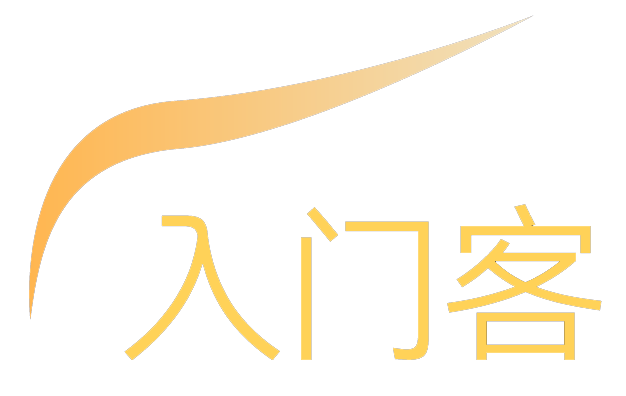utf8 to utf16
1. 问题描述: 将一个utf8 类型的字符串转换为utf16
/** utf8_to_utf16.c */
#define UTF8_END -1
#define UTF8_ERROR -2
typedef struct json_utf8_decode
{
int the_index;
char *the_input;
int the_length;
int the_char;
int the_byte;
} json_utf8_decode;
extern int utf8_decode_at_byte(json_utf8_decode *utf8);
extern int utf8_decode_at_character(json_utf8_decode *utf8);
extern void utf8_decode_init(json_utf8_decode *utf8, char p[], int length);
extern int utf8_decode_next(json_utf8_decode *utf8);
// utf8_to_utf16
extern int utf8_to_utf16(unsigned short w[], char p[], int length);
/**
Very Strict UTF-8 Decoder
UTF-8 is a multibyte character encoding of Unicode. A character can be
represented by 1-4 bytes. The bit pattern of the first byte indicates the
number of continuation bytes.
Most UTF-8 decoders tend to be lenient, attempting to recover as much
information as possible, even from badly encoded input. This UTF-8
decoder is not lenient. It will reject input which does not include
proper continuation bytes. It will reject aliases (or suboptimal
codings). It will reject surrogates. (Surrogate encoding should only be
used with UTF-16.)
Code Contination Minimum Maximum
0xxxxxxx 0 0 127
10xxxxxx error
110xxxxx 1 128 2047
1110xxxx 2 2048 65535 excluding 55296 - 57343
11110xxx 3 65536 1114111
11111xxx error
*/
/**
Get the next byte. It returns UTF8_END if there are no more bytes.
*/
static int
get(json_utf8_decode *utf8)
{
int c;
if (utf8->the_index >= utf8->the_length) {
return UTF8_END;
}
c = utf8->the_input[utf8->the_index] & 0xFF;
utf8->the_index += 1;
return c;
}
/**
Get the 6-bit payload of the next continuation byte.
Return UTF8_ERROR if it is not a contination byte.
*/
static int
cont(json_utf8_decode *utf8)
{
int c = get(utf8);
return ((c & 0xC0) == 0x80) ? (c & 0x3F) : UTF8_ERROR;
}
/**
Initialize the UTF-8 decoder. The decoder is not reentrant,
*/
void
utf8_decode_init(json_utf8_decode *utf8, char p[], int length)
{
utf8->the_index = 0;
utf8->the_input = p;
utf8->the_length = length;
utf8->the_char = 0;
utf8->the_byte = 0;
}
/**
Get the current byte offset. This is generally used in error reporting.
*/
int
utf8_decode_at_byte(json_utf8_decode *utf8)
{
return utf8->the_byte;
}
/**
Get the current character offset. This is generally used in error reporting.
The character offset matches the byte offset if the text is strictly ASCII.
*/
int
utf8_decode_at_character(json_utf8_decode *utf8)
{
return utf8->the_char > 0 ? utf8->the_char - 1 : 0;
}
/**
Extract the next character.
Returns: the character (between 0 and 1114111)
or UTF8_END (the end)
or UTF8_ERROR (error)
*/
int
utf8_decode_next(json_utf8_decode *utf8)
{
int c; /** the first byte of the character */
int r; /** the result */
if (utf8->the_index >= utf8->the_length) {
return utf8->the_index == utf8->the_length ? UTF8_END : UTF8_ERROR;
}
utf8->the_byte = utf8->the_index;
utf8->the_char += 1;
c = get(utf8);
/**
Zero continuation (0 to 127)
*/
if ((c & 0x80) == 0) {
return c;
}
/**
One contination (128 to 2047)
*/
if ((c & 0xE0) == 0xC0) {
int c1 = cont(utf8);
if (c1 < 0) {
return UTF8_ERROR;
}
r = ((c & 0x1F) << 6) | c1;
return r >= 128 ? r : UTF8_ERROR;
}
/**
Two continuation (2048 to 55295 and 57344 to 65535)
*/
if ((c & 0xF0) == 0xE0) {
int c1 = cont(utf8);
int c2 = cont(utf8);
if (c1 < 0 || c2 < 0) {
return UTF8_ERROR;
}
r = ((c & 0x0F) << 12) | (c1 << 6) | c2;
return r >= 2048 && (r < 55296 || r > 57343) ? r : UTF8_ERROR;
}
/**
Three continuation (65536 to 1114111)
*/
if ((c & 0xF8) == 0xF0) {
int c1 = cont(utf8);
int c2 = cont(utf8);
int c3 = cont(utf8);
if (c1 < 0 || c2 < 0 || c3 < 0) {
return UTF8_ERROR;
}
r = ((c & 0x0F) << 18) | (c1 << 12) | (c2 << 6) | c3;
return r >= 65536 && r <= 1114111 ? r : UTF8_ERROR;
}
return UTF8_ERROR;
}
int
utf8_to_utf16(unsigned short w[], char p[], int length)
{
int c;
int the_index = 0;
json_utf8_decode utf8;
utf8_decode_init(&utf8, p, length);
for (;;) {
c = utf8_decode_next(&utf8);
if (c < 0) {
return (c == UTF8_END) ? the_index : UTF8_ERROR;
}
if (c < 0x10000) {
w[the_index] = (unsigned short)c;
the_index += 1;
} else {
c -= 0x10000;
w[the_index] = (unsigned short)(0xD800 | (c >> 10));
the_index += 1;
w[the_index] = (unsigned short)(0xDC00 | (c & 0x3FF));
the_index += 1;
}
}
}
int main()
{
int i, ret = 0;
int length = 13;
unsigned short out_str[13] = {0};
char *in_str = "/home/steven";
ret = utf8_to_utf16(out_str, in_str, length);
printf("%d ", ret);
for (i = 0; i < length; i++)
{
printf("%c ", out_str[i]);
}
printf("
");
return 0;
}
声明:该文观点仅代表作者本人,入门客AI创业平台信息发布平台仅提供信息存储空间服务,如有疑问请联系rumenke@qq.com。
- 上一篇:没有了
- 下一篇:没有了

